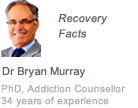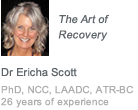Alcohol Addiction
Alcohol addiction is found in every country, every culture, every city, town, village and hamlet – there is nowhere in the world that alcohol has not been discovered and consequently nowhere in the world that alcoholism or alcohol addiction is not, at the very least, a concern for society. There are thousands of A.A type groups that aim to help an alcoholic get and stay sober. But for many, if not most, the addiction to alcohol is a signal of other problems.
Telling an addict to stop is not the answer, whatever the addiction. Understanding the underlying causes, recognizing a developing dependence and giving guidance, getting the right professional help and helping an addict to start the road to recovery is the best approach anyone can take.
Addictiveness of alcohol
Despite the universally accepted fact that alcohol is an addictive substance that has an effect on brain and bodily functions the only regulations in place to limit the damage alcohol addiction causes relate to age and venue. Alcohol is available in every supermarket, corner shop, restaurant club and bar that has a license to sell and until the addictiveness of alcohol is properly understood the problems will continue.
Alcohol addiction cures
When is an alcoholic no longer an alcoholic? The answer is when an alcohol addiction has been conquered. Perhaps the word cure is not quite on the mark, but hundreds of thousands of men and women live with alcohol addiction that no longer impacts on their lives. If an addiction, disease or illness is managed to the point that it disappears from everyday life then it is cured. Cures are not miracles; they are the fruits of courage, determination and hard work by the addicts, professionals and support networks around the world. Read more about alcohol addiction cures.
Alcohol detox
The first stage of any alcohol rehab program must be detox. An alcoholic has to undergo a period of withdrawal before anything else can be done. Withdrawal is hard; physically and emotionally the effects are horrendous and need to be properly supervised. Find out why alcohol detox is so tough in our article.
Alcohol and Domestic Abuse
Domestic abuse can be violent physical attacks, continuous psychological torture or a mixture of both. Victims can be men, women, children and even household pets. Generally it is understood and acknowledged that alcohol releases inhibitions, a domestic abuser is more likely to let go and attack when drinking than when sober. The links between alcoholism and domestic abuse are not straightforward, not all abusers are alcoholics or drug addicts and many of the abused suffer addiction of one kind or another. If you need to find out more read the article alcohol and domestic abuse.
Am I an Alcoholic?
An interactive questionnaire that could help you to identify a problem before it gets out of hand. Try it and see how you answer am I an alcoholic – you might surprise yourself.
Binge Drinking
In some cities and towns Friday and Saturday nights are blighted by the out of control, loud, aggressive and unpleasant behavior of groups who have been out to get as drunk as they can as fast as they can. Vomiting, crying, falling over pathetic drunks litter the streets and get into drunken brawls. Emergency departments staff up to deal with the results, shop keepers close early and pull their shutters down. Police spend hours loading drunks into vans, hauling them back to cells where they have a chance to sleep it off. Binge drinking is costly in more ways than one. The toll it takes on the drinkers’ well-being is as high as the costs of managing the social costs and clean up. Find out before you start – read the article binge drinking.
Effects of alcohol
The effects of alcohol are at least triple-fold: immediate intoxication followed by short-term morning after hangovers and depression and the long term damage to vital organs of alcoholics. Along the way between light social or recreational drinking and alcohol addiction the physical and financial hardships that excessive drinking causes are numerous and the less well-known effects of alcohol can be a surprise.
Patterns of alcohol abuse
Alcohol abuse, alcoholism and alcohol addiction have distinct traits and patterns that can help to identify a problem drinker before the alcohol takes over. Detailed studies by respected sociologists and scientists show how patterns of alcohol abuse ripple into society, the damage it causes to individuals and the costs for tax payers to correct it. Read more in our article patterns of alcohol abuse.
Recovery from alcohol addiction
Thousands of people fall into alcoholism every day, and just as many make the decision to stop drinking. Recovery from alcohol addiction is not easy or simple, but it can be done, and it can be sustained. There are as many support groups and specialist alcohol addiction programs as there are communities and hospitals. Finding the right approach, therapies and methods to quit drinking is the only way for any alcoholic to get sober and be able to say honestly that they are in recovery from alcohol addiction.
Signs of alcohol addiction
How can you spot the signs of alcohol addiction? What are the telltales that someone has a problem with alcohol? What should you do if you notice changes that point to alcohol addiction in someone you care about? None of the answers to any of these questions are simple; each question requires full explanation and detailed information. If you are not sure how to read the signs of alcohol addiction read the article and find out.
Teenagers and Alcohol
Put together a bunch of teenagers or young adults, give them a house with no parents present and a decent music system and you have an instant party. No problem – everyone has a good time, behaves well and goes home before the clubs and bars are shut. Now add an extra ingredient, alcohol perhaps, and everything changes. The music is way too loud, fights break out, neighbors call the police and kids are throwing up all over the place. Maybe one or two are lying comatose in a corner. Maybe one of those comatose, out of it, wrecked kids is dead from alcohol poisoning by the morning. Read the article teenagers and alcohol to get a bigger picture.
What is alcoholism?
Defining alcoholism as an anti-social addiction is fine as far as it goes, but that definition fails to address so much that is vital in providing treatment for alcoholics and protecting vulnerable people from this pernicious disease. Alcoholism is an illness and an alcoholic can get better. If this was not true then there would be no support groups or rehab clinics dedicated to helping alcoholics recover. More information can be found in our article what is alcoholism?
Women and Alcohol
Women drink alcohol. Women enjoy a glass of wine, a bottle of beer or a cocktail and there is nothing wrong with this. But women are physiologically less able to deal with alcohol in the body than men. It is a fact that cannot be changed no matter how independent and liberated our society is. The long term affects of alcohol on a woman’s body are faster, harder and cause more irreparable damage than it does in a man of the same age and relative size. If you are worried take the time to read our article about women and alcohol.
Note that all medical records related to rehab are protected by HIPAA and staff require HIPAA training.











